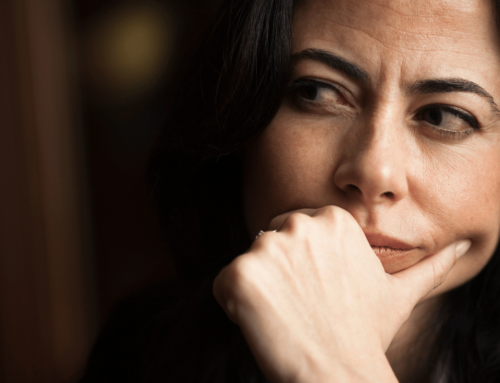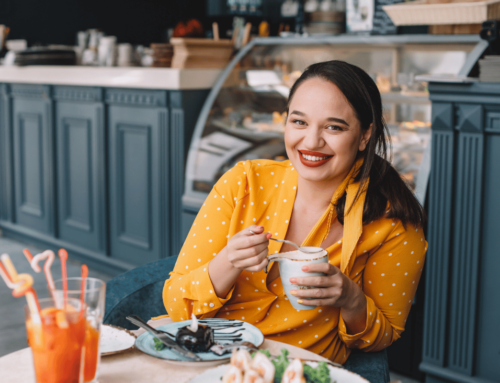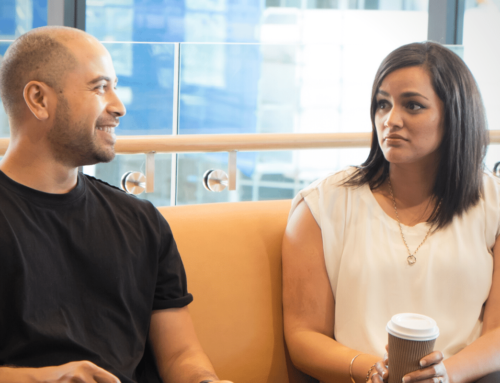
Following is the speech I gave today at the Seattle Go Red For Women luncheon:
Hello everyone, and happy first full day of spring! I am thrilled to be here talking with you today, because women’s health is such an important topic, and I say that not just because I am a woman and therefore a little biased. Women are expected to be so many things to so many people, and that can really get in the way of nourishing ourselves with food and activities that support our health and well-being. I certainly see that in my patients, in my friends and family, and yes, even in myself sometimes. #boundaries
Another factor that can make nourishing ourselves challenging is the fact that there are a lot of voices in the nutrition sphere—mine’s one of them—but not all of these voices are credible. And the voices that are credible? They don’t know you. That’s particularly true when the nutrition information or advice comes from a book, a blogger, a podcast or social media—literally coming from a stranger. But it’s also true when the person dispensing advice is your doctor, your dietitian—or your personal trainer.
Certainly, those people know certain things about you. They might know what your current eating habits are, what health concerns you have, how much you exercise. But that doesn’t brush aside the simple fact that you are the ultimate authority on yourself. You have inhabited your body for decades. You have been feeding yourself for decades. You have an innate sense of what has worked for you and what hasn’t, what foods leave you feeling satisfied and energetic—and what foods just don’t.
The real challenge is using that hard earned wisdom to guide your choices three, four, five, six times a day. It’s challenging to weigh your internal wisdom against the information and advice you receive from other sources—and seriously, there’s so much information out there that you pretty much absorb it by osmosis whether you want to or not.

When you receive a new nutrition suggestion, or even a nutrition prescription, do you trust yourself enough to try it on first to see how it fits? How does it feel to eat in a different way? Is this something you can see yourself incorporating into your daily life for years to come? If it doesn’t feel right, do you trust yourself enough to discard it, or maybe alter it so it fits better?
If you wear a size 8 shoe, and someone came to you and said, “This is a pair of size 7 shoes. They’re amazing. They will literally change your life. You need to start wearing these shoes, and get rid of all your other shoes.” Would you do it? Of course not, because you might be able to cram your feet in the shoes, but they aren’t going to feel good. On the other hand, if someone said, “These shoes are your size, but they’re not your usual style. I have a pair and I love them, they have revolutionized my life! I think you should wear them, too,” you might say, “Sure, I’ll give them a spin, I’ll see how they feel, see if they suit me. It’s possible that I’ve been in a rut with my usual choice of footwear.”
All of that is to illustrate an important fact: there’s no one diet that’s right for everyone. One of the biggest dietary questions that I hear is “Should I eat low-fat or low-carb.” Well, a few months ago, three researchers who come from very different research perspectives—one who has historically advocated for a low-carb diet, one who advocates for a ketogenic diet, and another, from right here in Seattle, who advocates for a low-fat diet based on research done with the Women’s Health Initiative—came to one conclusion.
That conclusion? Again, despite their widely differing research perspectives, they agreed that we can thrive on low-fat, or low-carb, or somewhere in between. They said that while there might be specific health conditions where low-carb or low-fat is warranted as part of a specific treatment plan, for most people, the quality of what we eat is what matters most.

So what does “quality” mean? I’m willing to bet that you have a pretty good idea—maybe a very good idea—of the answer, but since I’m standing up here I’ll tell you anyway. A variety of fruits and vegetables. Whole grains. Beans and lentils. Healthy fats from foods like avocadoes and olive oil. Fish, which is an excellent source of protein and healthy fats, especially if you go for oily fish like salmon. Nuts, which are a nice little package of protein and fiber and healthy fats. Skinless poultry, lean cuts of meat, or maybe some tofu or tempeh.
Not surprisingly, those are also the types of food that the American Heart Association recommends that we emphasize. And if you feel like you want to put a label on it, a Mediterranean-style diet is a good model to follow. It’s certainly a delicious one, especially since there’s a lot of room for variation and customization, especially for flavors, because there are so many countries and food cultures bordering the Mediterranean Sea. Most people think of Greece, and the southern parts of Italy, France and Spain, but there’s also Lebanon, Turkey and Morocco, to name a few.
I had my own breakfast revolution a few years ago when my husband and I spent a week in Istanbul. We stayed in this lovely little hotel that had the best breakfast buffet I’ve ever experienced. If you ignored the cold cereal that was set out for the Americans, there were platters of fresh tomatoes and cucumbers and herbs, with amazing yogurt and stewed fruits and olives and hummus and cheese. And really good coffee. We do our own version of that at home at least a few days a week, and I love that we’re incorporating vegetables into breakfast in such a delicious and satisfying way. Plus, it brings back memories of that amazing city and its wonderful people every time.

I encourage you to approach how you eat—and any potential changes—with an attitude of exploration and curiosity. Do your food choices resonate with you and help you feel better in your day-to-day life? Rather than relying on external rules about what and when to eat, or reacting mindlessly to external food cues, practice noticing and tuning into your internal cues.
- When do you get hungry? What does it feel like when you’re getting full?
- What meals or snacks keep you satisfied, and which ones don’t?
- Are there some foods that just don’t seem to sit well with you?
- How do you feel when you’re eating lots of vegetables? How do you feel when you don’t?
This practice of tuning in, of listening to what your body is telling you, is a key part of practicing both mindful eating and intuitive eating. The two practices aren’t exactly the same, but they have much in common, including one major benefit—the development of interoceptive awareness, the awareness of bodily sensations. This is something that everyone can benefit from, but especially women, who often have trouble trusting their guts that something feels right—or wrong.
A few weeks ago, I read about some research presented at a European cardiology conference. This research found that women will call an ambulance for a husband, father or brother who is experiencing symptoms of a heart attack—but they won’t call one for themselves. The researchers takeaway? “It’s time for women to take care of themselves, too.” This research was done in Poland, but I suspect the findings would be similar here in the U.S.
The principal researcher of the study said: “Very often women run the house, send children to school, and prepare for family celebrations. We hear over and over again that these responsibilities delay women from calling an ambulance if they experience symptoms of a heart attack.” Other research has found that when women do call an ambulance, they tend to wait longer, and that’s especially true for younger women, who of course “can’t possibly” be having a heart attack. This means that fewer women are treated within the recommended time period.
This sounds an awful lot like the short film, “Just a Little Heart Attack,” that actress Elizabeth Banks did for the American Heart Association and Go Red for Women in 2012. I suspect that you’ve already seen it, but if you haven’t, I highly recommend it, and not just because I love Elizabeth Banks.
Last month, I was at a workshop in San Diego, and one of my teachers said, “We’re here because we have a body. What a gift that is.” I think we tend to forget that. Certainly, many people—especially women—spend a lot of time hating their bodies, fighting their bodies, not trusting their bodies. But you only have one body, so please, take care of it, listen to it.
Trust that you are strong, you are capable, and when you feel like you’re struggling with how to eat, how to fit exercise into a busy schedule, or what to do about a health issue, you can figure it out. Even when you need the expert help of your doctor, dietitian or other healthcare provider—and we all need help sometimes—remember that you are the number one expert on yourself. Trust that when you’re working on building healthier habits and you slip off track, you can begin again—and again, and again. Each time you do? It’s a success!






